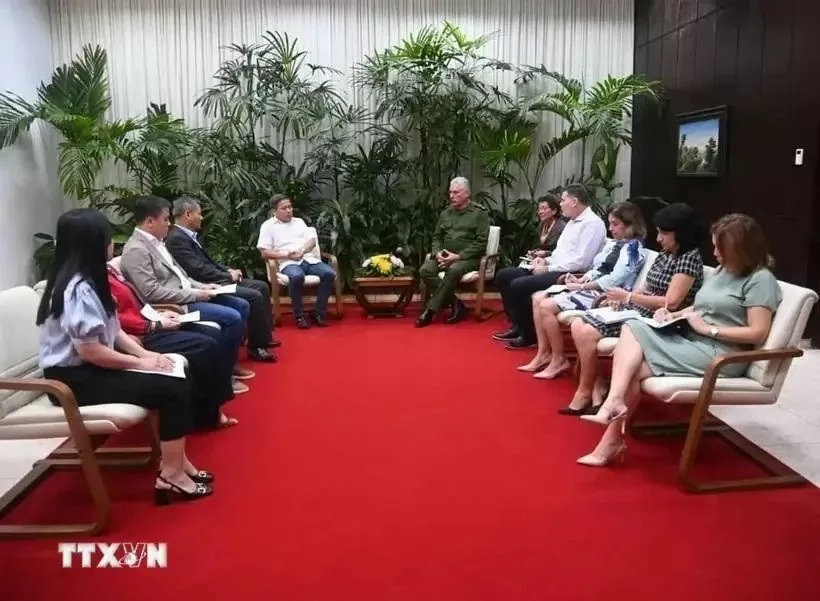
Cuban President Miguel Díaz-Canel reaffirmes support for Vietnamese investors in Cuba
Latest
 |
| Cuban President Miguel Díaz-Canel reaffirmes support for Vietnamese investors: Cuban President Miguel Díaz-Canel (far right) receives representatives of Vietnamese businesses. (Photo: VNA) |
President Díaz-Canel pledged that Cuba would work to develop mechanisms and solutions to create favourable conditions for Vietnamese businesses investing in the Caribbean nation. He highlighted the sincere and friendly relationship between Cuba and Vietnam, underscoring the strong backing of both governments for investment and business cooperation between enterprises from the two countries.
After listening to Tuan’s briefing on the production and business activities at the ViMariel Industrial Park - an investment by Viglacera, a subsidiary of GELEX, in the Mariel Special Economic Zone, Díaz-Canel expressed his satisfaction with the progress achieved.
He said these efforts have contributed significantly to Cuba’s economic development, meeting domestic market demands, and generating employment opportunities for local workers. He extended a warm welcome to GELEX, Viglacera, and other Vietnamese companies to explore further business and investment opportunities in the “brotherly island nation.”
For his part, Tuan thanked the Cuban government for its support to Vietnamese businesses and expressed his optimism about the bright prospects for Cuba. He put forward several proposals to strengthen business cooperation between the two countries.
Tuan noted that since the visit of General Secretary of the Communist Party of Vietnam To Lam to Cuba in October, GELEX and Viglacera have been actively advancing investment and collaboration in key areas, including industrial parks, building materials, pharmaceuticals, and biotechnology. He reaffirmed the commitment of GELEX and Viglacera to support Cuba in such sectors as agriculture, energy, and technology.
In addition to the ViMariel Industrial Park, Viglacera co-founded the Sanvig Joint Venture in November 2019, specialising in the production of construction materials. This joint venture not only supplies goods to the domestic market but also plays a key role in enhancing Cuba’s construction industry.





















